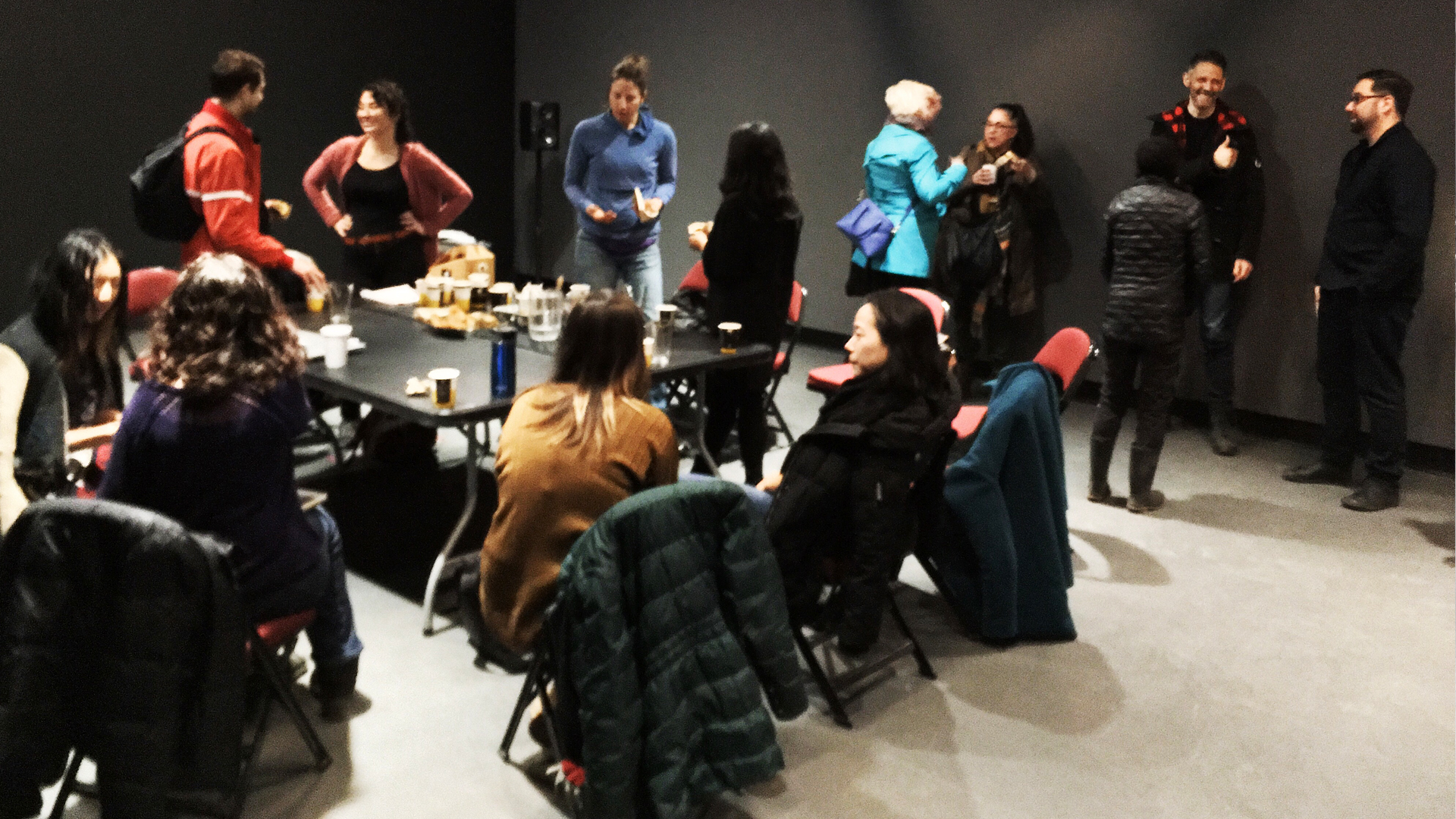Theories of Sensory Implication for Public Art, Dylan Robinson

Presented as part of Knot Project Space’s Video in the Public Sphere Speaker Series – a program of lectures that ran from October 2018 – April 2019. The series ran concurrently with a year-long public art commissioning program which culminated in the exhibition Knot Projections 2019: Imagining Publics featuring five large-scale outdoor video projections installed at four sites/surfaces throughout the city. The speaker series stimulated critical thinking during these commissions by bringing to Ottawa five national and international artists, curators and critics who were thinking through questions of publicness, site-specificity and civic engagement in their respective practices. Each delivered a talk in the project space and at times conducted follow-up seminars or workshops with the group of commissioned artists and other artists in the community. Each speaker also offered a reading list of texts related to their ongoing research.
Theories of Sensory Implication for Public Art
This discussion led by Dylan Robinson focused on theories of sensory implication, and public art/activism that implicates viewers in a politics of accountability through its sensory, material and affective impacts. How do public art’s forms, materiality and modes of address act as strategies of interpellation? What roles do alienation and enchantment (among other affective registers) play in the sensory experience of public work?
Dylan Robinson
Dylan Robinson is a xwélméxw artist and writer of Stó:lō descent, and the Canada Research Chair in Indigenous Arts at Queen’s University. His current work focuses on the return of Indigenous songs to communities who were prohibited by law to sing them as part of the Indian Act from 1882‒1951. Robinson’s previous publications include the edited volumes Music and Modernity Among Indigenous Peoples of North America (2018); Arts of Engagement: Taking Aesthetic Action in and Beyond the Truth and Reconciliation Commission of Canada (2016) and Opera Indigene (2011). His monograph, Hungry Listening, is forthcoming in 2019 with Minnesota University Press.